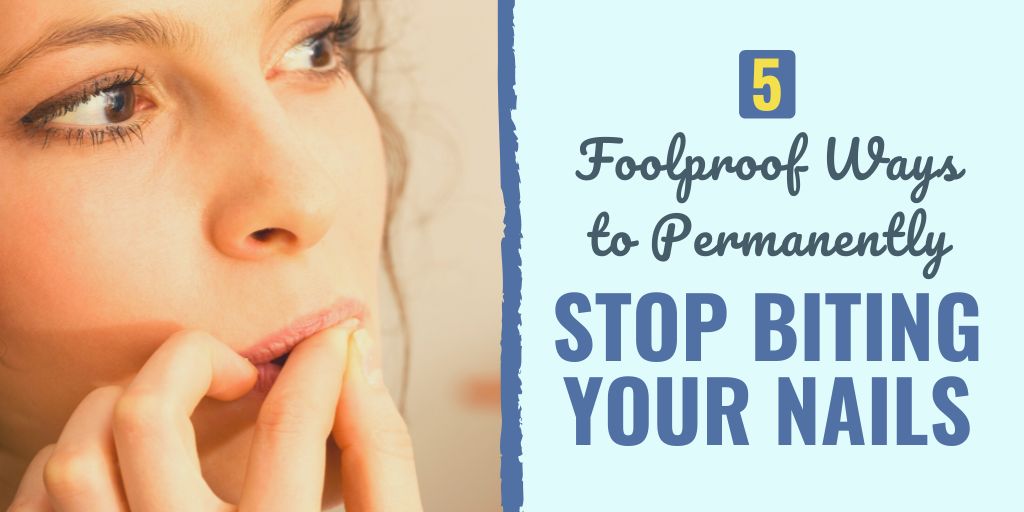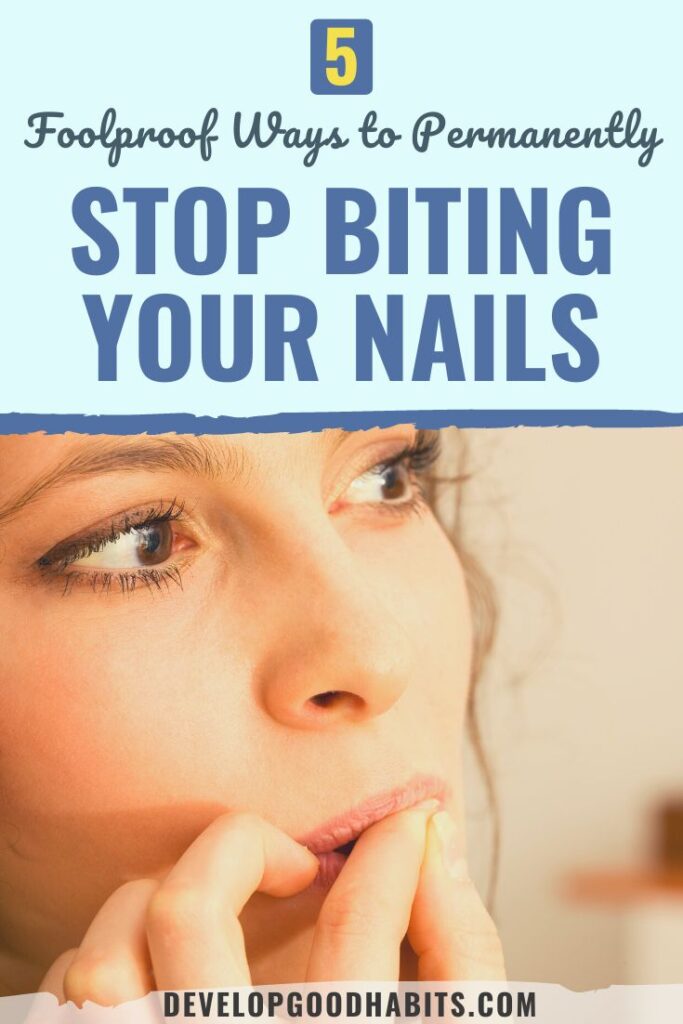Let’s face it: Nail biting is a bad habit.
But if this is a habit that you have, you've likely noticed that it isn't easy to stop.
Nail biting is common in children and teenagers. In fact, it is the most common nervous habit worldwide, and it’s a popular habit among adolescents because the teen years can be especially stressful, and stress can manifest itself through nail biting.
But there are also numerous adults who bite their nails in times of stress as their coping mechanism.
Although nail biting is generally considered a minor bad habit, and some might say it is not as gross as picking your nose in public, habitual nail biting can certainly reveal a person’s emotional state.
It is considered one of the indicators of some mental health disorders, including ADHD.
This habit can make the fingernails grow in a strange way. In the long term, nail biting can cause damage to the teeth by chipping the tooth enamel, which can lead to cracks or even breakage.
Aside from that, those who incessantly bite their nails put themselves at a higher risk of contracting dangerous and even fatal infections such as E. coli, staph infection, herpetic whitlow, salmonella, and systemic candidiasis.
You might have come across this article in your search for tips on how to stop biting your nails or prevent someone you care from doing it. Today, we will explore the causes of nail biting in detail and give you some strategies to stop doing it for good.
What Causes Nail Biting?
Onychophagia is the medical term for nail biting, and is usually observed in the younger population. The peak age of this habit is 10-18, but it may begin much younger and continue for several years. Most people stop this habit once they reach adulthood.
Boys have been found to be more prone to onychophagia than girls. This habit causes people to not only bite their nails, but also the soft tissues that are around the nail bed, resulting in unsightly and often painful fingers.
Although a single cause of nail biting has yet to be identified, the following factors are the most commonly recognized causes for people to bite their nails.
1. Genetics
In some cases, this condition is genetic and might run in the family. Children may develop this habit after observing their parents or other people in the family doing it.
Aside from mimicking family's behavior, children may have the same traits of anxiety that run in their family, leading them to bite their nails when they become anxious.
The genetic link to onychophagia may be the cause of nail biting when a child has an inherited tendency toward repetitive behaviors, in addition to higher rates of mood and anxiety disorders in blood relatives.
2. Behavior Copying
In addition to seeing their parents exhibiting this behavior, children may also witness teachers or other children at school biting their nails. This could result in children copying the behavior and picking up the habit themselves.
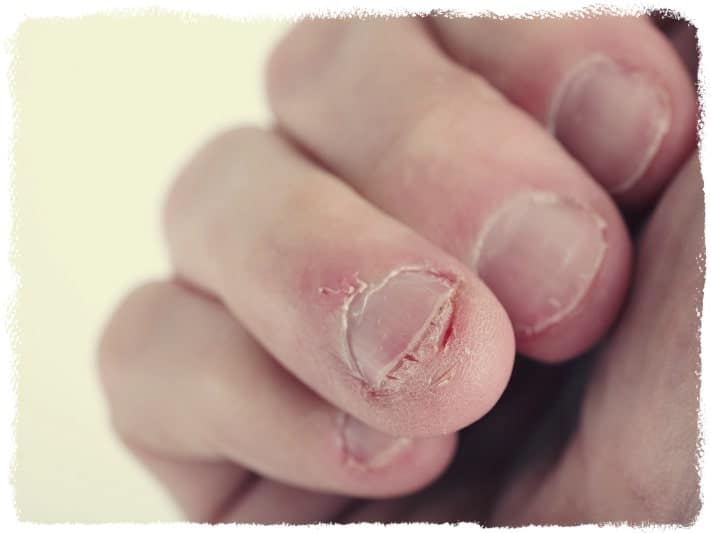
For most parents, nail biting can seem as bad as thumb sucking, tooth grinding, or hair pulling because these are all repetitive and stress-relieving behaviors that involve the body. But some parents may not realize they do it themselves, which sets an example for their children.
3. Boredom or Loneliness
Some research has suggested that a lack of stimulation, stress and loneliness can lead to nail biting. Some people feel tension when they are bored, and biting their nails is a natural reaction that they have towards boredom.
For people who have an oral fixation, they may bite their nails unconsciously while reading a book or watching a TV show. In fact, there are some people who keep doing this habit even while they're sleeping.
4. Obsessive Compulsive Behaviors
Biting your nails may be a compulsive habit that you are more likely to do when you're bored or frustrated. One study suggests that people who are more likely to bite their nails are typically perfectionistic and have neurotic personalities. Biting one's nails seems to satisfy an urge and give some kind of reward.
People with repetitive behaviors such as nail biting often cannot relax or do tasks at a standard pace. This results in frustration, impatience, and dissatisfaction when their goals go unmet. In addition, this group of people often experiences boredom more frequently than others.
In this study, researchers found that the participants who had a higher likelihood of exhibiting compulsive behaviors had a greater urge to engage in their compulsive activities while they were bored or frustrated.
Additionally, psychologists claim that nail biting is something that people do when they feel as if they have a need for control. Most people prefer to have a sense of control over their lives, and when this control is lost, they seek out something that they can control. Because of this, people develop obsessive compulsive behaviors.
5. Signs of Emotional or Mental Stress
People who tend to bite their nails engage in this behavior when they are under stress, which suggests that this condition is not strictly due to nervous habits.
Nail biting is associated with stress because the act of biting one's nails has been known to reduce stress and tension. People who bite their nails on a regular basis do this when they feel nervous, stressed, or even hungry.
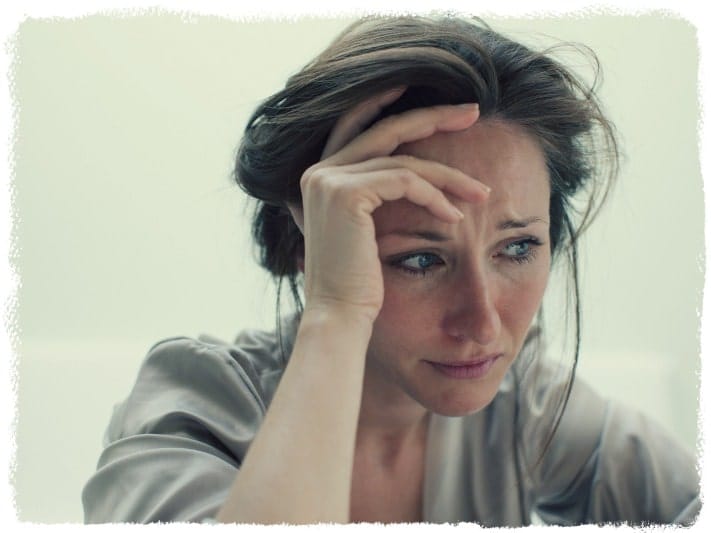
6. A Sign of Perfectionism
Perfectionists cannot relax or perform tasks at a normal pace, so they're prone to becoming frustrated, impatient, and dissatisfied when they fail to reach their goals.
Nail biting helps perfectionists reduce their feelings of frustration in the current moment. As one might expect, it helps people release some of the pent-up energy and tension that they're holding onto.
If nail biting remains untreated, it can lead to problems beyond cosmetic issues. Continuous nail biting can lead to an infection and can damage the skin on your fingers. It may also lead to the following:
5 Foolproof Ways to Stop Biting Your Nails
1. Acknowledge that nail biting is a negative habit that you want to stop.
Prepare yourself for the changes you need to make and the challenges you will face in order to overcome this bad habit. Make a commitment to stop nail biting for good.
This is the most difficult part, even though it sounds easy. Tell other people that you are committing to this change so they can help keep you accountable. Write it on a piece of paper and put it over your desk so you will look at it every day. Take this commitment seriously—you’re either in or you’re out.
This may also involve identifying your triggers. If you know what makes you bite your nails, you can look out for those things and be conscious of your resulting actions. Identify your triggers, alter your behavior, and you will find it easier to stop biting your nails.
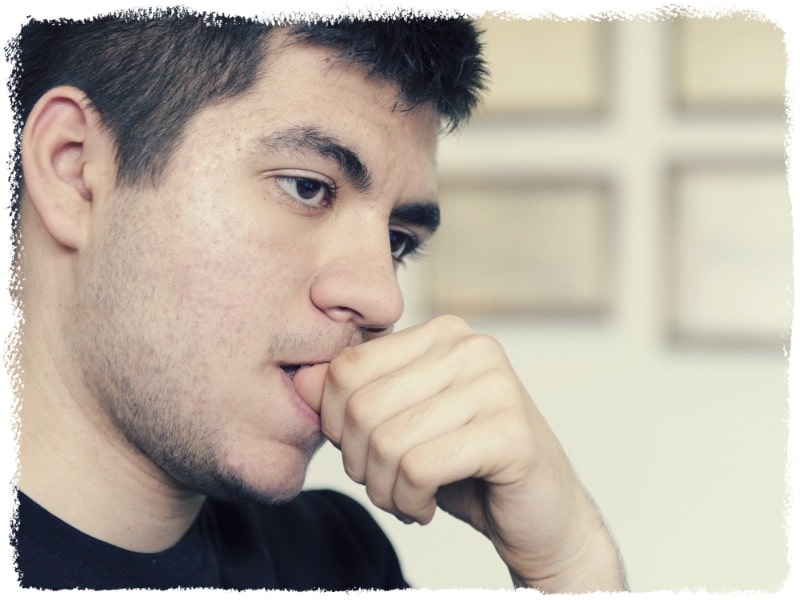
2. Avoid cold-turkey approaches to stopping the habit of biting your nails.
You probably associate the term “quitting cold-turkey” with smoking, but it can refer to stopping any bad habit. But with a failure rate of about 95%, quitting cold turkey on any negative habit is obviously not the best way to go about it.
In order to stop this biting your nails, you need to have a plan and follow the steps that you create to be successful. Quitting cold turkey will just increase your stress and make you want to bite your nails even more. Set small goals for yourself to quit this habit.
For example, start by refusing to bite the nails on one hand. If that is too much, you can even start with just one finger. Once you are able to keep this up, continue until all of your fingers are off limits.
Another option is to use nail polish specifically designed to prevent you from biting your nails. These nail polish products have a bitter but harmless taste that discourages you from biting your nails and even break the thumb sucking habit in children.
3. Keep your fingers busy.
One study shows that manipulating objects is somehow effective in preventing people from biting their nails. So, find an object of some sort to fiddle with. This could be a stress ball, a fidget spinner, or simply a pen to click. If your hands are occupied doing something else, you will be less likely to start biting your nails. If you feel nervous, try things such as:
All of these things will keep your hands occupied if you are stressed, and they will also keep your fingers away from your mouth. Make sure to always have something within reach for when you need it. Whatever you choose, make sure that you are replacing your nail biting habit with a less destructive one.
In addition to keeping your fingers busy, you probably want to also keep your mouth busy. You can do this by chewing gum or sucking on candies throughout the day.
It will be difficult to bite your nails if you have gum in your mouth or you are snacking on something a bit more palatable. Also, the texture of your bitten nails in addition to the flavor of your gum or a piece of candy is certain to be gross.
Eat small snacks throughout the day. You of course don't want to eat so much that you are gaining weight, but you can carry around some healthy and crunchy snacks such as carrots or celery so you can chew on them throughout the day.
Finally, bring a water bottle with you wherever you go so you can take a drink of water if you're having a moment of weakness.
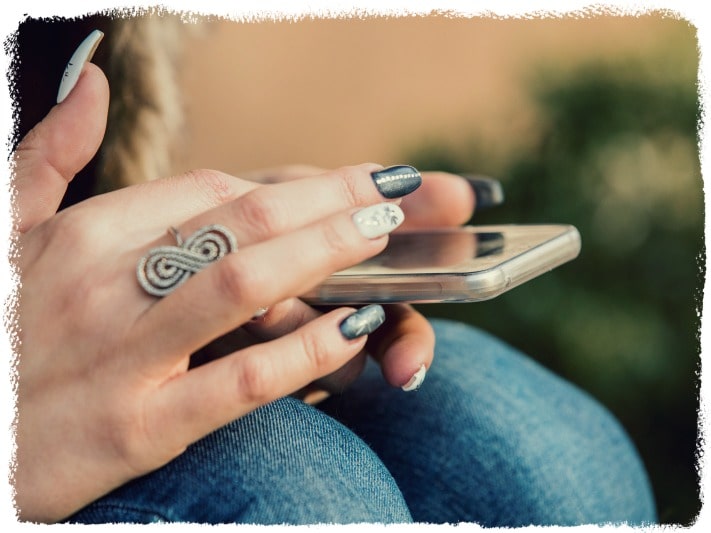
4. Create new positive habits.
In the same study mentioned above, the results revealed that creating new habits to replace the negative one is the most effective way to prevent nail biting.
Learning the triggers to habitual behavior is often referred to as awareness training, and most people’s habits have lasted for so long that they don’t pay attention to the causal factors.
It is also important to identify the reward that you receive from biting your nails. This might be a sense of completeness, or any kind of physical sensation that you start to crave. The ultimate goal here is to have the cues and rewards remain the same, but the habit change.
Once you are aware of how your habit works—the cues and rewards you are getting from it—you have already made a lot of progress toward changing it.
Some new positive habits that you can consider taking up include:
Cleaning your house: Not only will this result in a cleaner house, but it will also help you feel happier and less stressed when you are at home, which are common triggers for nail biting.
Knitting: Learning to knit can help you create beautiful scarves, blankets, and clothing that you can gift to other people. This will also keep your hands busy.
Running and/or walking: When you exercise, you release endorphins, which will help calm your nerves. Having a calmer mindset will be more helpful if you are the type of person who bites their nails when they feel tense.
Nail art: If you have your nails painted, you will be less likely to bite them because it will mess up the design.
Do clay or plaster projects: This is a unique art hobby for people who bite their nails because the flavor of the clay or plaster will remain in your fingers for several days after you wash it off, which will discourage you from biting
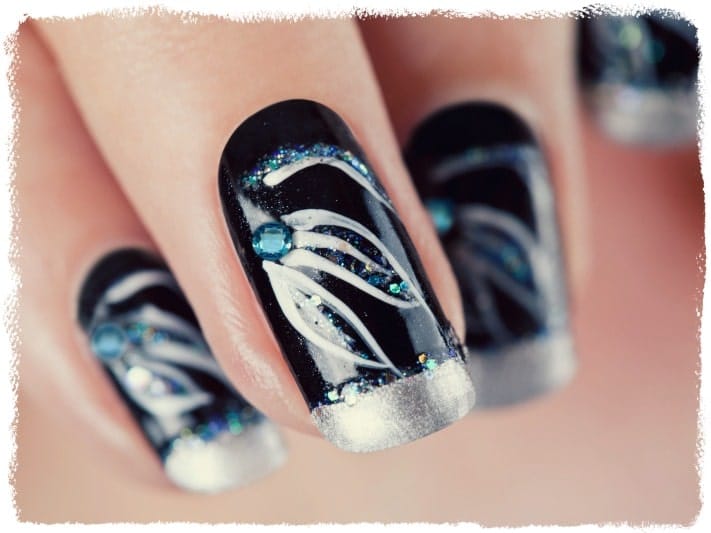
5. Reward yourself.
When you have not bitten your nails for a certain period of time, there’s reason to celebrate! Reward yourself for overcoming the challenges in your way. Your first reward will be quickly apparent—your nails will start to look better.
After this, start treating yourself to manicures or taking care of your hands in another way that will help you keep them looking neat.
Don't be shy about showing off your nails to your friends. Show people your hands and ask them if they can even believe that you used to bite your nails. Take pictures of your hands and nails so you can enjoy how great and healthy they look.
You can even make before-and-after photos of your nails to remind yourself that you are capable of attaining goals and making significant changes in your life.
If you're trying to get your children to stop biting their nails, using positive reinforcement is arguably the best thing to do, even if you don't notice results quickly.
If your children are pre-teens and they are able to succeed for even a brief period of time at refraining from biting their nails, give them praise, applaud their efforts, and reward them in a way that motivates them to continue the positive behavior.
If your child is younger, keep it a bit simpler by keeping an eye out for a moment when their fingers are not in their mouth. When you notice this, point out whatever they're doing with their hands and give some positive input.
This could be something like, “I really like the picture that you’re drawing” or “The kitty loves being scratched!”
Want to know what happens to you when you take a moment to acknowledge the small things you’ve accomplished? Then check out this video:
Final Thoughts on How to Stop Biting Your Nails
I hope that the suggestions listed here on how to stop biting your nails have inspired you to get rid of this negative habit once and for all. If you implement the five strategies that we just detailed, you’ll discover that it’s not hard to permanently eliminate the nail-biting habit.
You can reprogram your brain—it is just important to be deliberate when trying to do so. Whether you are trying to stop your own nail biting or that of a child, it is important to stay consistent so that new, positive habits stick.
At first, you will likely still notice yourself biting your nails, despite the amount of willpower you think you have. But with time and patience, you can move past this habit and be on your way to healthy and pain-free nails for life.
And if you want more resources about healthy habits, be sure to check out these blog posts:
- 44 Top Daily Healthy Habits Recommended by Experts
- 53 Simple Healthy Habits to Improve Your Quality of Life
- 9 Ways to Help Your Child Build Healthy Habits
Finally, if you want to focus on a great HEALTH habit that increases your energy and helps with your weight goals, then take 30-seconds each morning to prepare this drink to feel energized throughout the day.

